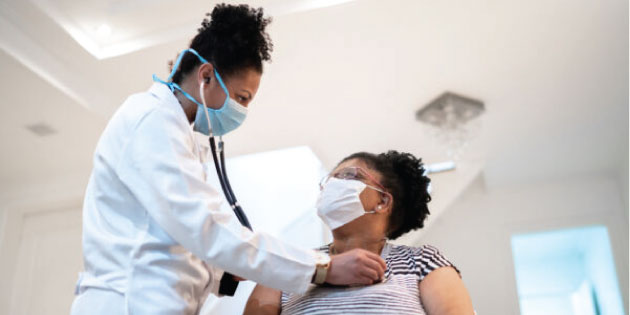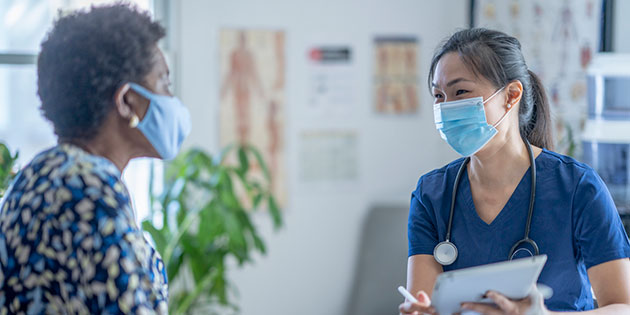Physician Payments Sunshine Act
Signed into law in 2010, the Physician Payments Sunshine Act requires medical technology manufacturers operating in the U.S. to comply with specific transparency requirements. It’s important to note that the Sunshine Law does not restrict industry-physician collaboration or interactions, or prohibit payments or transfers of value.
Understanding the Sunshine Law
The main purpose of the law is to provide patients with enhanced transparency into the relationships their health care providers have with life science manufacturers, including medical technology companies. The Sunshine Law requires that payments and transfers of value made by life science manufacturers to “Physicians” and “Teaching Hospitals” be reported. Under the Sunshine Law, “Physicians” include doctors of medicine and osteopathy, dentists, podiatrists, optometrists and licensed chiropractors. The SUPPORT Act expanded these “Covered Recipients” to include Physician Assistants (PA), Nurse Practitioners (NP). Clinical Nurse Specialists (CNS), Certified Registered Nurse Anesthetists (CRNA). Anesthesiologist Assistants (AA/CAA), and Certified Nurse Midwives (CNM).
To learn more about The Sunshine Law, read our brochure.
Background on Industry-Physician Relationships
There are numerous ways in which medical innovation companies compensate Health Care Professionals (HCPs) for their time, expertise and intellectual property, in connection with the development of new medical technologies, the improvement of existing technologies, and training and education of other health care professionals in the safe and effective use of medical technology, among other beneficial services.
These arrangements fuel advances in medical technology, and improve medical care and the quality of healthcare available to American patients and consumers. Specific examples under the Sunshine Nature of Payment Categories are below.
- Consulting Fees are both common and essential in the physician-industry innovation-focused relationship. Physician expertise is critical in the development of new medical technologies as well as the refinement and improvement of existing medical devices. Physician input into the device development process assures that an innovation will be of practical use to medical practitioners and will improve patient outcomes. For example, implanted medical devices can sometimes be reshaped to make it easier for physicians to implant. Such an adjustment can save time and prevent potential complications. An improvement such as this cannot be done without the input of physicians who have real-world experience with the device. Consulting fees are also paid for a variety of other activities, including training sales staff and other physicians on safe and effective use of an applicable manufacturer’s products.
- Honoraria may be paid when physicians provide their time, preparation and expertise to conferences or medical congresses to share research, provide input on new innovations, and highlight clinical challenges with existing technologies. These discussions are critical to educating physicians, advancing the science of medicine, and ensuring the efficacy of new products. Additionally, honoraria may be paid for instructing company personnel, such as medical science liaisons and research development professionals about the clinical challenges faced in a particular practice area. Physicians deserve compensation for the time taken away from their practice to help with these efforts for the common good. Honoraria therefore may be paid for the same types of activities as consulting fees, although, honoraria are typically used when the physician is expected to provide a limited number of services during a year, and an honoraria agreement may be entered into for each service. Since honoraria are a subset of consulting arrangements and we recommend that companies have flexibility to report these payments as “consulting services.”
- Education is an essential component of the innovative process. When a new device is developed, or an existing technology improved, physicians and other health care professionals often require training on the correct technique, application and usage of the technology. In fact, in many cases, the FDA requires product specific training and education for new devices.
- Research is the bedrock of advancing medical progress. To bring a new, beneficial health care innovation from concept to the patient may require years of research and development, at substantial expense. Manufacturer research payments compensate physicians, health care professionals, research institutions, and members of the academic community who bring their unique expertise and perspectives to the research and development process. Research payments and grants offset a variety of other expenses related to research and development, such as Institutional Review Board (IRB) preparation and approval, patient informed consents, patient follow-up visits for designated periods of time, reimbursement of certain patient expenses, submission of required data, adverse event reporting, investigator meetings, monitoring visits to confirm compliance, and publication of clinical results.
- Royalty or license. In many cases, a new product or an improvement of an existing technology springs from the mind of the health care professional. As practitioners in the field, physicians regularly generate new ideas, designs or prototype technologies. In exchange for the physician’s intellectual property rights and know-how, companies and physician-innovators may enter into agreements that grant the physician innovators royalties or other payments based on sales of products that use the physicians’ intellectual property.
- Direct compensation for serving as a faculty or a speaker. Physician-to-physician sharing of medical and scientific knowledge is vital to disseminating information on the most effective uses and applications of new medical innovations, and in training other practitioners on the safe and effective use of technology. As addressed in Section II.12 of this letter, manufacturer typically do not compensate faculty for accredited programs. Instead, they typically compensate physicians serving as faculty for manufacturer programs through consulting or honoraria agreements.
AdvaMed®’s Efforts
AdvaMed® supports appropriate disclosure of relationships between medical technology companies and health care professionals. Our member companies recognize that strong ethical standards are critical to ensuring appropriate collaboration between the medical device industry and health care professionals to produce the world’s most advanced medical technologies.
Physicians provide valuable recommendations on how to improve the safety and functioning of existing devices and offer ongoing consulting to furnish expert technical assistance and feedback to companies in the development and refinement of those improvements.
In short, physician expertise, feedback, and experience are critical to ongoing advances and innovations in medical technology. Our Sunshine Implementation Working Group – with over 100 compliance professionals – develops policy recommendations to develop clear rules and definitions to facilitate a common approach by manufacturers. By seeking to ensure that collected data is meaningful and consistent with the legislative intent and policy objectives, our Working Group encourages health care professionals and teaching hospitals to participate ethically in bona fide collaborations that fuel medical device innovation and improve patient care.


